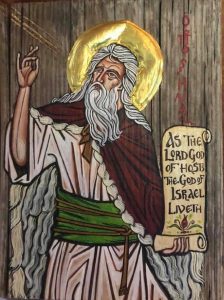 Today, we liturgically remember Elijah the Prophet. It is a day to request a blessing for the car and motorcycle.
Today, we liturgically remember Elijah the Prophet. It is a day to request a blessing for the car and motorcycle.
Prophet Elijah of great renown, seer of the mighty mighty works of God, by your command you held back the rain! Pray for us to the only Lover of mankind! (Kontakion)
Elijah was a prophet of the northern kingdom of Israel during the 9th century reign of Ahab and his consort Jezebel. The first book of Kings records the prophet’s fight against the ingratitude and apostasy of the chosen people, a battle colorfully portrayed in Elijah’s contest with the priests of Baal.
Later Judaic tradition came to regard Elijah’s fiery departure as a prophetic sign in itself, and his return was awaited as the herald of the Messianic age. Thus in the New Testament, both John the Baptist and Christ were mistakenly thought to be the reappearance of Elijah. However, at Christ’s transfiguration, Elijah does make his second appearance in fulfillment of this ancient expectation.
Elijah is one of the most dramatic and inspiring of the Old Testament prophets. His many feats of power over the elements of fire and water made him a popular saint in the oldest folk traditions of the Middle East and Russia. The Church remembers the prophet as a prototype of Christ, and events from his life are read on the feasts of Pascha, Theophany, and the Transfiguration. (NS)
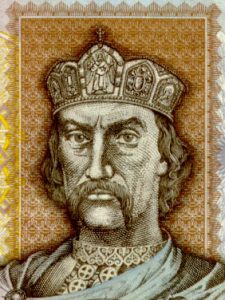 The Kievan Rus’ Church –to which we belong– today liturgically recalls the memory of Vladimir. The holy Vladimir the Great, grand prince of Kiev and equal of the apostles, in baptism named Basil.
The Kievan Rus’ Church –to which we belong– today liturgically recalls the memory of Vladimir. The holy Vladimir the Great, grand prince of Kiev and equal of the apostles, in baptism named Basil. “The feast of Peter and Paul and the Birth of John the Baptist are ranked as great feasts, after those of Christ and the Theotokos. Icons of the apostles grouped at the Ascension or at Pentecost always picture Peter and Paul at the head of the assembly, although, historically, Paul was not present at either.
“The feast of Peter and Paul and the Birth of John the Baptist are ranked as great feasts, after those of Christ and the Theotokos. Icons of the apostles grouped at the Ascension or at Pentecost always picture Peter and Paul at the head of the assembly, although, historically, Paul was not present at either.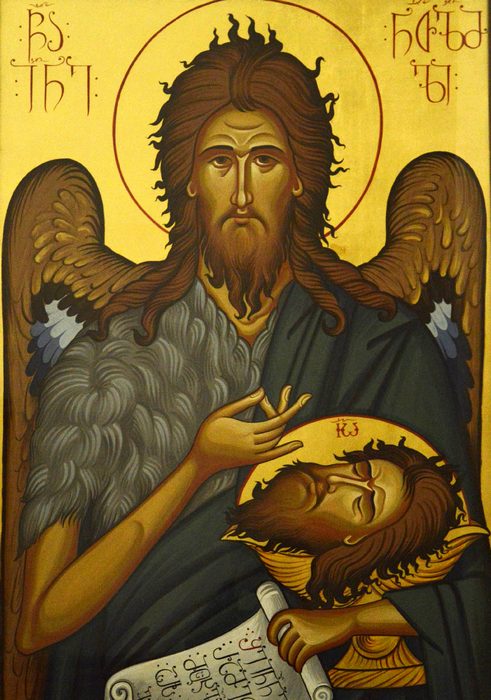 THE BIRTHDAY OF THE GLORIOUS PROPHET AND FORERUNNER AND BAPTIST OF THE LORD, JOHN.
THE BIRTHDAY OF THE GLORIOUS PROPHET AND FORERUNNER AND BAPTIST OF THE LORD, JOHN.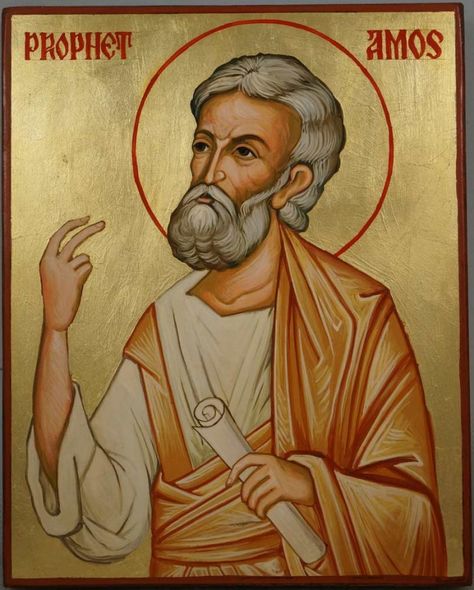 The Church liturgically recalls the memory of the holy prophet, Amos. Like the other prophets, he is revered as a saint. Amos is third of the Twelve Minor Prophets who lived during the eighth century before Jesus Christ.
The Church liturgically recalls the memory of the holy prophet, Amos. Like the other prophets, he is revered as a saint. Amos is third of the Twelve Minor Prophets who lived during the eighth century before Jesus Christ.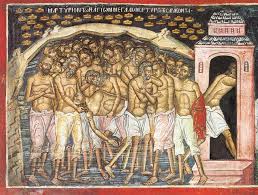 Together let us honor that holy company united by faith, those noble warriors of the Master of all; they were divinely enlisted for Christ and passed through fire and water. The they entered into refreshment and pray for those who cry: Glory Him who has strengthened you; glory to Him who has crowned you; glory to Him who has made you wonderful, O holy Forty Martyrs. (Apolytikion)
Together let us honor that holy company united by faith, those noble warriors of the Master of all; they were divinely enlisted for Christ and passed through fire and water. The they entered into refreshment and pray for those who cry: Glory Him who has strengthened you; glory to Him who has crowned you; glory to Him who has made you wonderful, O holy Forty Martyrs. (Apolytikion)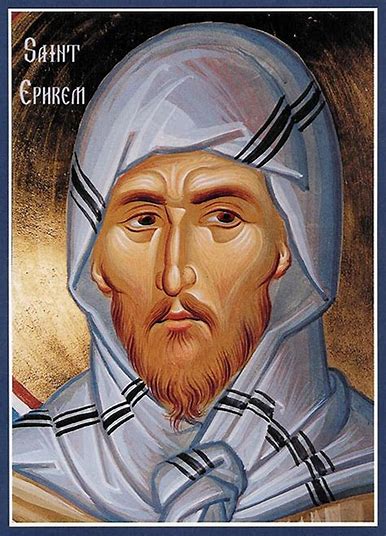 Today, the Church liturgically recalls the life and work of Our Holy Father Ephrem the Syrian.
Today, the Church liturgically recalls the life and work of Our Holy Father Ephrem the Syrian.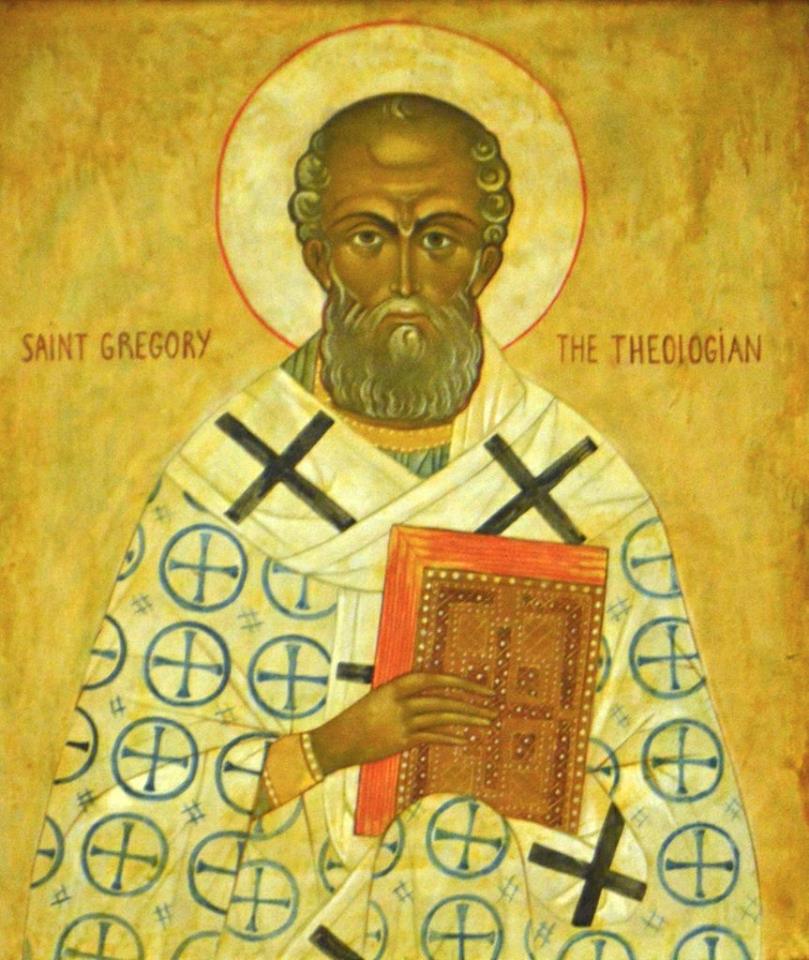 Today the Church liturgically commemorates one the greats: St Gregory the Theologian, Archbishop of Constantinople. The Troparion for this feast reads:
Today the Church liturgically commemorates one the greats: St Gregory the Theologian, Archbishop of Constantinople. The Troparion for this feast reads: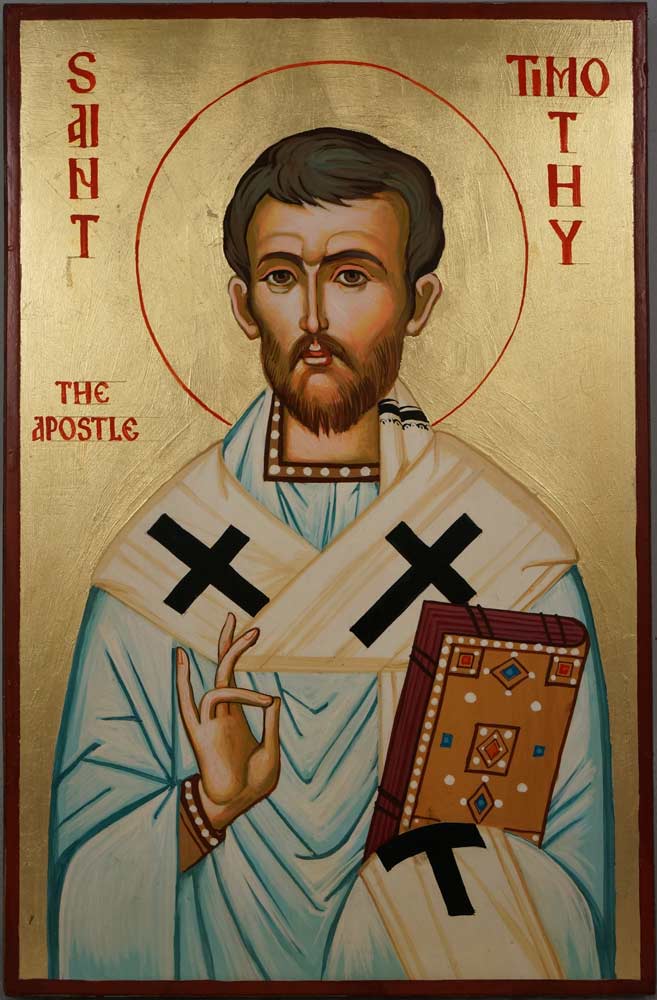 The holy apostle and martyr, Timothy, bishop of Ephesus, is honored by the Church today.
The holy apostle and martyr, Timothy, bishop of Ephesus, is honored by the Church today. St Maximus the Confessor is liturgically commemorated today.
St Maximus the Confessor is liturgically commemorated today.